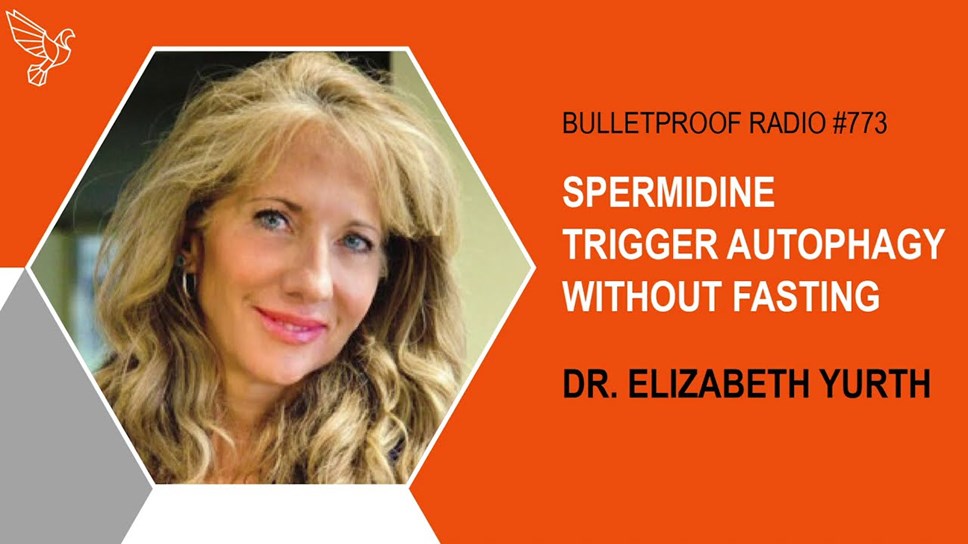
Source: Bullet Proof Radio With Dave Asprey
December 2020
Dr. Elizabeth Yurth Talks Spermidine with Dave Asprey.
In this episode of Bulletproof Radio, my guest Dr. Elizabeth Yurth explains how spermidine, a substance found in the human body and almost all plants and animals, can slow down the cellular aging process and influence your overall health.
“Where we see spermidine work is at a very, very base level to correct the autophagy to get rid of those bad mitochondria so that now we're not being overwhelmed by reactive oxygen species,” Dr. Yurth says. “We actually will start to recycle the bad parts of the cell and start with a new cell at that point.”
Dr. Yurth is medical director/chief medical officer at Boulder Longevity Institute, and a partner with Longevity Labs+, the company that’s been pioneering spermidine research for the last decade and focuses their research on the improvement of aging.
So what does spermidine do? Most importantly, it regulates a cell renewal process called autophagy, one of the most touted benefits of fasting.
Spermidine helps you take control of the aging process.
SpermidineLIFE® is the first naturally extracted and clinically tested dietary supplement to promote cellular renewal after multiple studies, trials and 10 years of research.
People in clinical trials reported better memory, better sleep, more energy, reduced brain fog, improved skin and hair, and more.
“Spermidine’s working on so many pathways to reduce reactive oxygen species, to improve the immune health, and to reduce the inflammatory cytokines that we know are initiated in these disease processes,” Dr. Yurth says.
Spermidine is an important part of the body’s cellular processes that:
-
Support healthy cell aging
-
Have preventive effects on age-related diseases
-
Increase life expectancy and liver protection
-
Promote healthy weight
-
Normalize bone density
-
Reduce age-dependent muscular atrophy
-
Enhance growth of hair, skin, and nails
“Every single species, every one-cell organism. Everybody has this, so we know it’s critical to life," Dr. Yurth says. "We absolutely know it’s critical to life.”






